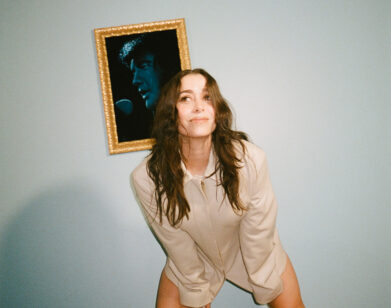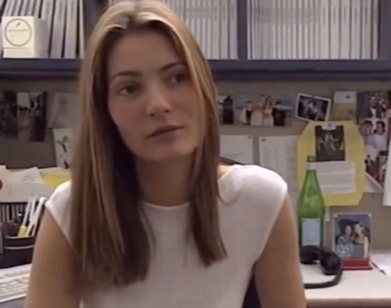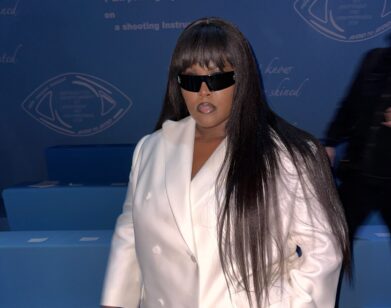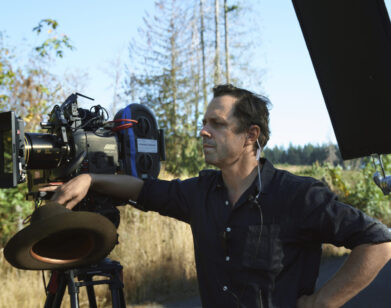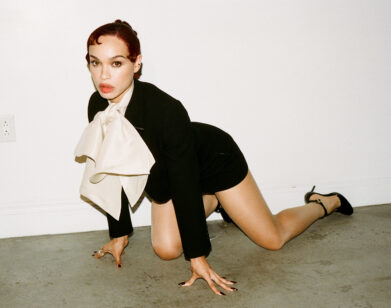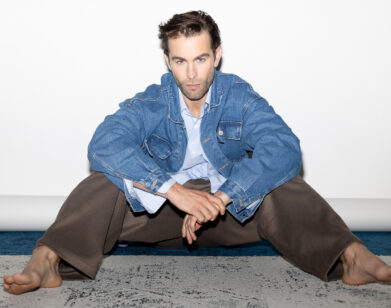Tracee Ellis Ross and Tyler, the Creator on Falling and Getting Back Up
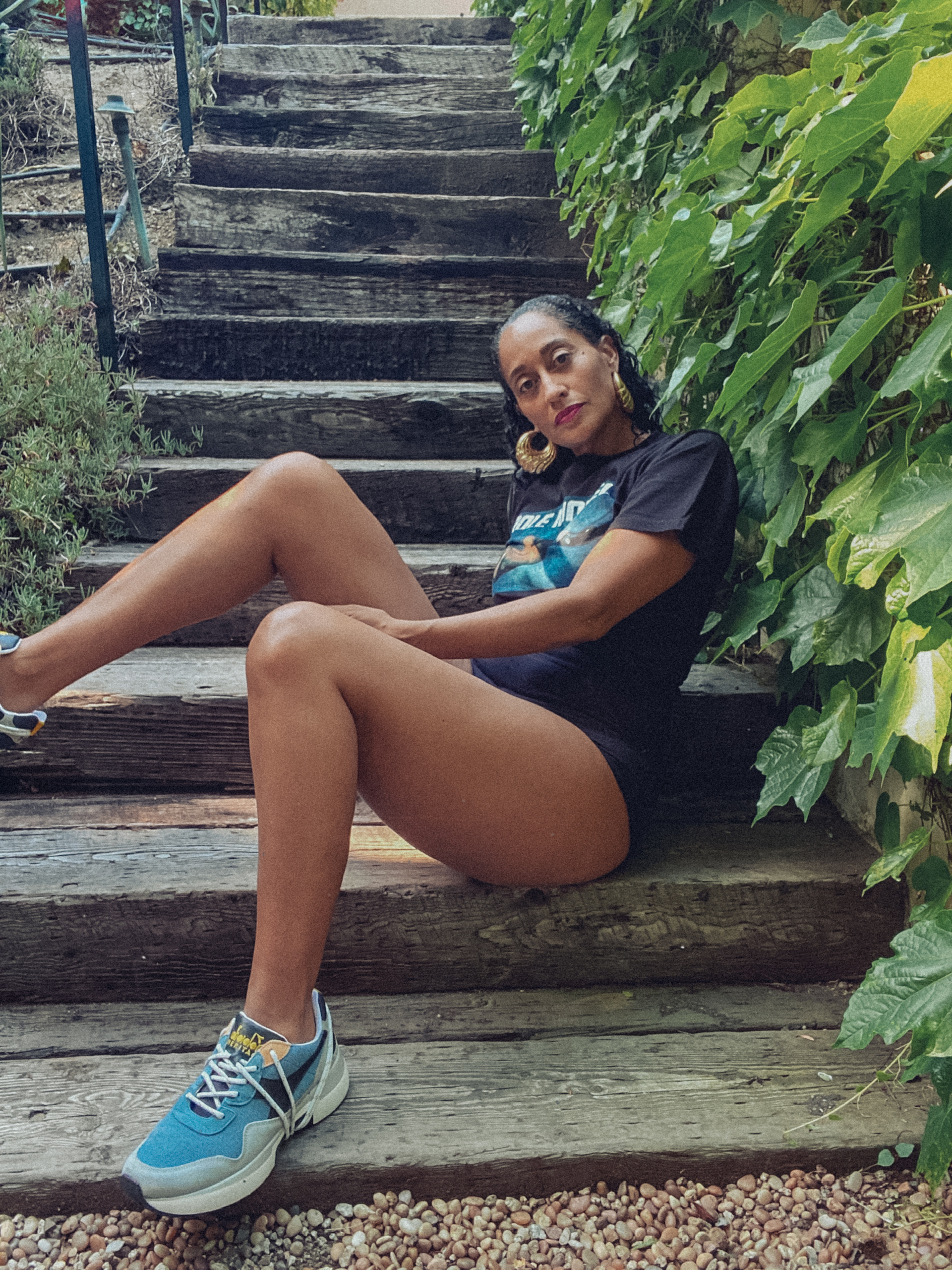
Describing an actor’s performance as “the role they were born to play” is a little trite, but for Tracee Ellis Ross, who stars opposite Dakota Johnson in the new music-industry fairy tale The High Note, it’s hard to argue against. Ross, who has carved out a career as an actor, producer, and businesswoman separate from her mother, the iconic Motown chart-topper Diana Ross, plays Grace Davis, a larger-than-life singer-songwriter who finds herself at a career crossroads. Does she coast on past success and give in to the corporate forces trying to control her? Or does she chart her own course? In real life, Ross has done the latter. Best known for her roles on the sitcoms Girlfriends and black-ish, the 47-year-old Los Angeles native has used her platform as a springboard to build a hair care empire, produce shows that celebrate the rich complexity of Blackness, such as the black-ish spin-off mixed-ish (she also has a recurring role on the other spin-off grown-ish), and create a social media presence that empowers as much as it entertains. Singing, however, was always a north star that she never quite reached, which meant stepping into the booth to lay down the movie’s lead single, “Love Myself,” was as thrilling as it was terrifying. As she tells her friend, the maker-of-stuff Tyler, the Creator, “I walked through a fear and toward a dream.”
———
TRACEE ELLIS ROSS: How are you, Tyler?
TYLER, THE CREATOR: I’m good. I’m in L.A. Today’s the first day the sun isn’t out.
ROSS: I don’t like it.
TYLER I’m going to ride my bike around the city, probably to Palos Verdes or something.
ROSS: That’s a long ride, Tyler.
TYLER: It’s not that long, I do it all the time.
ROSS: Impressive. You’re a very strong man.
TYLER: Honestly, I’m a weak bitch. My punches are not good. I can run fast, but if I had to hold somebody from falling off a cliff, they’re going to die.
ROSS: If it’s somebody you love, I bet you that strength would come out that you didn’t even know was there.
TYLER: I would try my hardest.
ROSS: That I know. Let me tell you this before you start: The day I did the table read for this movie, I left and came straight to do your [“Earfquake”] video.
TYLER: Really? Wow.
ROSS: Full-circle moment here, babe.
TYLER: That’s actually wild to me. And now you have a whole-ass movie.
ROSS: This is my first time having a leading role in a feature film.
TYLER: Was it wild adjusting? You’re used to having that on TV shows, but was the movie thing different from how you usually work?
ROSS: It honestly wasn’t that different. The thing that felt like a stretch was the singing. Once I made it through the fear, I was like, “Wow, I’m very at home in this environment.” I love being on stage. So no, I don’t think in terms of the experience it was different, but in terms of the perception of what that does, and always wanting to be on the big screen, it’s exciting to me. I’m not one of those people who gets off on being so jaded on life. I get off on actually celebrating the stuff that feels exciting to me. And it’s a big deal.
TYLER: Just being around you the few times we’ve hung out, you have a glow that radiates. People just want to hang out with you. You have that personality and that energy. Have you been like that your whole life?
ROSS: Oh, I’ve been like this forever.
TYLER: Like, when you were 5 you were definitely dressing up and putting on a show for anyone who would watch. And in high school you were probably in the drama club. I can tell, because I was like that, too. I hosted my kindergarten graduation, I was in the talent shows, I was a class clown. You can’t help it, and that’s something that made me gravitate toward you.
ROSS: I can’t even remember how we met or how we ended up at that first dinner. It was me, you, and ASAP. Or Rocky. I need to stop calling him ASAP.
TYLER: I was with Rocky and he was like, “I’m going to go to this place.” And I was like, “I don’t want to go there, that place is stupid. But okay, I’ll go for six minutes. But we’re leaving at 7.” And then you were there and we ended up hanging out. And I was like, “What the fuck did this turn into?” Y’all was eating cheese and shit, with grapes.
ROSS: You were eating cheese and honey. You kept putting the honeycomb on the cheese. Externally, I don’t know that people would think we have so much in common. But there’s a freedom to you that’s not necessarily about, “Look at me,” but more kind of, “This is who I am.” I feel comfortable around people like that. I went and saw you in concert and I’m not a huge concertgoer. I guess because of being my mom’s child, sometimes it’s hard for me to just be in audiences, I get nervous. And, by the way, I’d never seen a mosh pit before, and I’ve never been more alarmed in my life.
TYLER: Yeah, you told me.
ROSS: But seeing you on stage was so fun for me, because you have a completely different energy on stage than you do in person. And I think that was the kind of thing that was really fun for me to bring to this role. I’ve had an intimate connection to so many recording artists and performers who I know both sides of—their stage self and their personal self. And being able to own that larger-than-life part of you, where your energy throws to the back of a room… I’m not saying anything articulate today.
TYLER: No, no. You made three different points and you articulated them very well. To that first thing you said, about freedom, I think that’s what drew us to each other. You also have that freedom where the way you are at home at 6 a.m. is the same way you are at 8 p.m. in front of a bunch of people. Not a lot of people have that.
ROSS: I agree with you.
TYLER: It’s actually beautiful that we’re aware of this superpower that we have where we’re just us, no matter what. We don’t get nervous in front of people. We look in the mirror and we’re okay with it. And you dress so fucking well.
ROSS: Thanks, Tyler.
TYLER: It’s not about the brands or any of that. You know proportions and silhouettes, and I think that’s the most important thing that a lot of people don’t realize when it comes to clothes. And I was like, “Oh my god, she’s not only funny, but she’s also on her shit and she knows how to wear pants. Goddamn.”
ROSS: Why don’t we just make this article a conversation of compliments? Because that’s the other thing about you. I love seeing a black man who is not afraid to move in all the areas of expressing himself. It’s something that you bring to the world that I think is really important. And also, the ability to not be just one thing all the time. We all have different parts of our identities that move forward at different times for different reasons. And I feel like you let that happen in a way that doesn’t seem to frighten you. That’s very inspiring for people to be able to experience and witness. Also, you do all of your own shit with your music. It’s all you.
TYLER: Pretty much.
ROSS: You’re a savant.
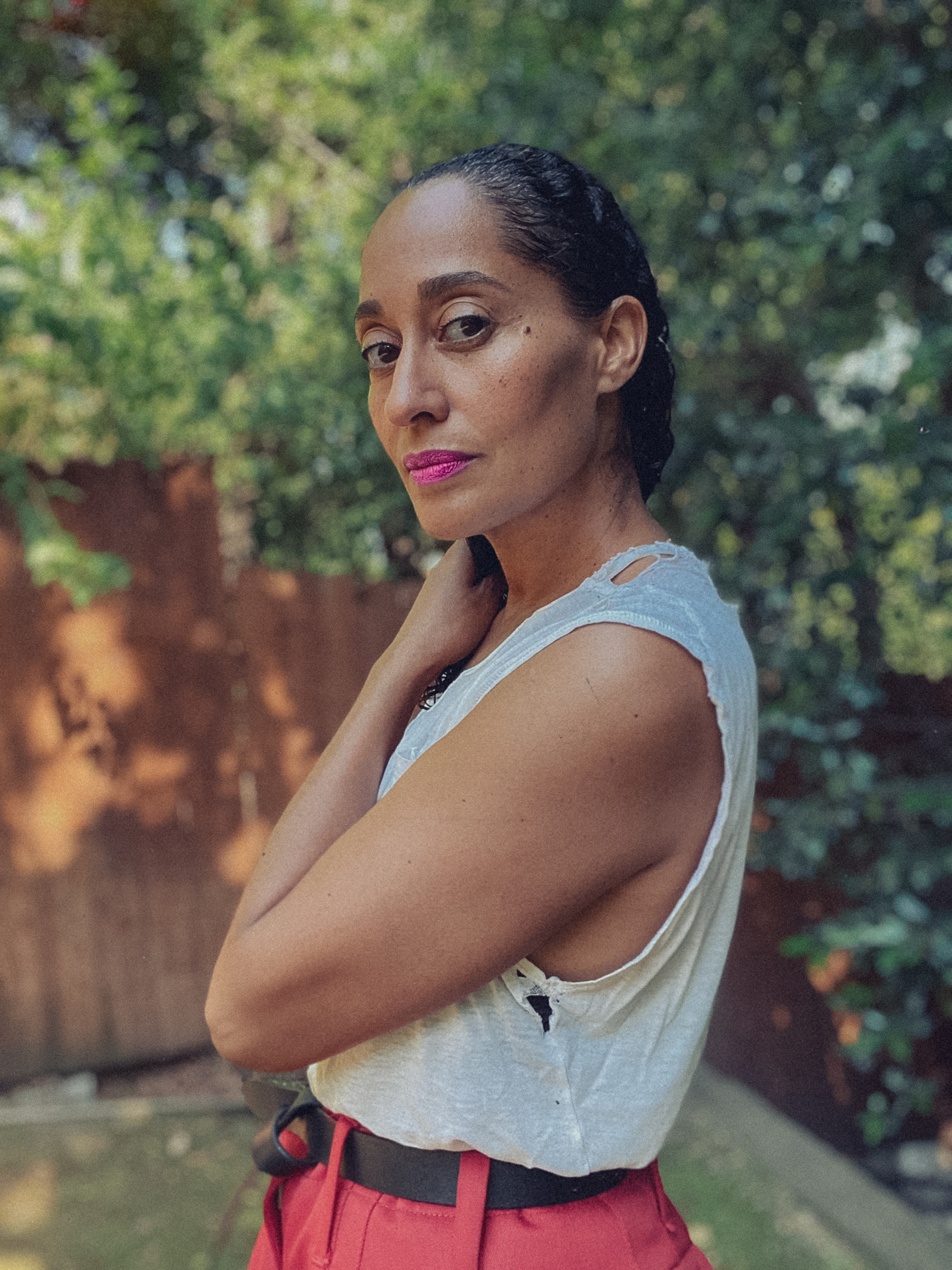
TYLER: Thanks for the kind words. I’m just okay with me and I don’t let anything I’m into dictate who I am. I think people get caught up in having an identity. People whose whole identity is like, “Oh, I love the Raiders. I have the tattoo and I go to every game, and don’t disrespect them.” It’s like, “Bro, you don’t know yourself and you’re so caught up in having an identity that you grabbed this one thing so that you could have a sense of self and team, and so that you could have people that you feel close to, because you’re scared of being alone and not having a group of people.” And I was always mindful of that as a child: “Yeah, I like this, but that’s not all I’m into.” It’s almost like when a rapper’s like, “I rap, so these are the checkmarks. Chains. This, that, this, that.” And it’s like, “No bro, you can rap and also really have fun baking cakes.”
ROSS: I love that. Do you call yourself a rapper?
TYLER: No. When people ask me what I do, I just tell them I make shit. People trick themselves when you give something a title. People don’t like to be in the unknown. That’s why if you show someone something new, they’re like, “Oh, this is like this.” Because their brain can’t let it just be this thing that’s floating. So sometimes I don’t like saying, “I’m a rapper,” or, “I’m a producer,” or “I make clothes,” because they automatically listen to what I’m going to say after that differently, because of the context of whatever profession I said I was in. So I leave it as broad as possible.
ROSS: I like that idea of, “I make shit.” I was like, “Do I make stuff?” I think I share stuff.
TYLER: If someone’s like, “What do you do?” you could just say “stuff.” Wherever my curiosity takes me, I follow. If I fucking hate it, I’m on to the next thing. A lot of people don’t move like that and it just boggles my mind. It’s like a math problem I can’t comprehend.
ROSS: I don’t think everybody has the constitution to do that. I remember growing up when it dawned on me that I loved—the word I came up with then was eccentric people—but people who have a sense of freedom and safety within themselves, who make me feel safe within myself. I always felt like there was something wrong with me, why I thought the way I thought, felt the way I felt, the big feelings I had. And then I realized, “I can’t be anybody else. I might not be everybody’s cup of tea, but I’ve tried to be other people and it doesn’t work. I’m really best at being me.” It takes a lot of courage to be yourself.
TYLER: I’ve never had a problem with saying, “Hey, guys, this is what I’m into.” I’m fully okay with, “Okay, y’all ain’t fucking with it, but I fuck with this. This brings me joy.” I wish more people, whether it’s people in the music industry, movie industry, whatever, had more of a sense of that, because things that are being made would just be more interesting. People would be so geeked out on what they love that they’d add more nuance to it. Instead of, “Oh, this is what’s popping right now? Well, here, let me just emulate that.” Sure, emulate it, but add a bit of the shit you really love and make it nuanced. That’s what makes new shit.
ROSS: I also think our culture has gotten so crazy that it’s all about what people think before you even have time to dream and play. Nuance comes because it’s you. It’s not some cookie-cutter thing, some app you downloaded. It’s something you created, which comes out of your soul, which is bouncing up against the life that you had that no one else had. We’re all so busy trying to make ourselves look like everybody else and talk like everybody else. You’re like, “Are there robots around me? What’s happening?”
TYLER: It’s fucking robots, dude.
ROSS: Yeah, I don’t like it. It makes me feel unsafe, because what it starts to do is make me feel like who I am is wrong. I don’t want to look in the mirror and think, “I need to change that, make it look more like a filter.” You spend so much time worrying about those kinds of things that you can’t get lost in your imagination. Have you seen my videos with the French accent?
TYLER: Yeah, yeah.
ROSS: Someone asked me, “Is that how you’ve been keeping yourself sane during the pandemic?” I was like, “I do that shit all the time. This is not a pandemic situation.”
TYLER: Oh my god. Yes, yes, yes. I still wake up at 7 a.m. and brush my teeth and moisturize my face and shower and get ready and put on an outfit like I’m going somewhere even if I’m sitting in the house, because that’s just me. People are like, “You’re biking 45 miles on a BMX bike to stay in shape?” No, I do this because I like it, and I like looking at how the sun looks on a house. This isn’t to stay in shape for Instagram. Again, to that point, everyone needs to pin something to something. You’re not doing it because it’s a pandemic, you’re doing it because it’s your shit.
ROSS: Because it makes my heart sing. People are like, “Are you still dressing up in the pandemic?” I was like, “Well, I have a different version of it.” I haven’t worn pants with zippers or a thing that I have to send to the dry cleaners, but, yeah, I still put on a lip, I’ve got fresh-cut flowers in my house. By the way, let me tell you the greatest thing. I love tulips, and one of the things I love about them is that even though they’re fresh-cut flowers and they’re not still in the dirt, they’re completely alive. I’ll come downstairs after a night’s sleep and they’re in a completely different position, reaching towards the sun. Today, I had the best experience in the world. In all my years of loving tulips, I’ve never had this experience. I actually heard what it sounds like when a tulip goes from reaching straight up, to when it wilts itself down and decides that it wants to rest. It was the most glorious sound I’ve ever heard.
TYLER: That’s fucking amazing and awesome, and wow, I did not know that. And to my second point, that’s you being you and geeking out on the smallest thing. That makes your heart weep, because it means something to you. I love when people geek out on shit that they love, whether it’s a song, or some tulips, or a shirt. Because you shared that, people might get into tulips and start a garden. And who knows? That person might end up starting the best home and garden magazine that we’ve ever seen, just because you shared that. Or they’ll take that and they’ll say, “Damn, she went into detail about that little thing that she loves. Maybe I should share.” Whether it’s on Instagram, Twitter, to a friend, in a diary, or just to themselves. Something super-detailed and articulated in the way you did, like “Hey, I really like this. Let me not be afraid of loving it. Let me not keep this a secret at home. Let me be outward with it.
ROSS: That’s important.
TYLER: I love talking about music. I’ll show you a song and break it down for 50 minutes. I’m a geek about it. So hearing you talk about a flower like that, I love it.
ROSS: I feel like you’re a sonic genius. When we were sitting at that horrible place we won’t mention and were eating cheese and honeycombs, it was so loud in there, but you could hear the music and you kept identifying what the music was. That was one of the things that was really fun for me at this age, to launch myself into a world where I didn’t feel comfortable, where I didn’t know everything. I know the television world, I know what a set is like. But to go into the recording studio was really new. And I was grateful that I had the opportunity to risk how afraid I felt to try something new and not worry about what people thought.
TYLER: People are more obsessed with the idea of failing than the idea of succeeding. I love bike riding and I could never nail down the wheelie. Thursday night I was like, “Fuck this. Tomorrow, I’m going to wheelie.” For an hour, I practiced my wheelie in the middle of the street, people watching, paparazzi out. I fell a few times, but who gives a fuck? I like having scars. And some of my friends were just chilling and I was like, “Why aren’t y’all doing this?” But I think they just didn’t want to fall or get embarrassed. But I’m like, “I don’t care about being embarrassed, I don’t care about failing.” I like the idea of getting it more than I hate the idea of people laughing. And now I have it. I could wheelie for a block now, almost two.
ROSS: The growth spurt actually occurs when you’re falling, and how you get back up each time. One of my tendencies is to think that my good feelings and bad feelings are the truth, like they take up the whole screen in front of me. You know when you’re in the bathroom and you come out of the shower and your mirror is completely fogged over?
TYLER: Uh-huh.
ROSS: When I get that feeling, it feels like the foggy, I-just-got-out-of-the-shower feeling. And then, slowly, as you open your bathroom door or it cools off, it opens up that little circle and then it gets bigger and bigger and bigger. That’s what I feel like happens when I start learning something new. It’s the fearful feelings: “What are people going to think? What if I get cold? What if I’m hungry?” But as the fog dissipates and you start to see it clearly, you’re like, “That stuff is not what mattered. It was temporary.” I was so afraid to sing, and it became this big monster, and then I realized I was stuck in smoke and mirrors. And I walked through a fear and toward a dream, and now all of a sudden, I have a new kind of freedom that has nothing to do with singing, because I’ve now experienced this idea of, you can walk through it. One wheelie at a time. You’ll fall, but you get back up. When we’re kids, we don’t judge the fact that in order to learn how to walk we fall. That’s the way it happens, that’s the way we learn everything, but somehow we get older and we start thinking there’s some other way to do it.
TYLER: Well, adults are fucking stupid. They think they’ve got it together, but they don’t. Everyone has this idea of what good and bad is. The singing thing is so interesting to hear, because when I first met you, I was like, “Oh, she for sure be singing.” You just have that energy. But it’s also like, you were learning, you were trying to perfect it for the film. I’m not the best singer but my favorite music is soul and R&B, and I love melody. So when I started making songs where I was singing, people were like, “It’s trash.” And I was like, “Yeah, dumbass, I know. I suck at singing, and I’m practicing in front of you guys because I don’t care if you think it’s good or bad. I’m going to get better in two years.” Then two years later, “Ah, you still suck, why are you still doing this?” Long story short, my biggest songs to date are all singing songs. And the people who were saying that I was bad were just projecting their inner fears of trying something that they wanted to try, but not being able to. And now I’m better at singing and they’re probably not better at whatever they wanted to do.
ROSS: I think that’s another thing we have in common, because it would take a lot for me to get embarrassed. As I always say to a director, “It’s much easier for you to tell me to be smaller than to be bigger.” Part of my fear was I had an idea of what I thought I was supposed to sound like, as opposed to walking into it to discover what I sound like and let that be it. And what I realized is that singing and soul is not about sounding like something, it’s about telling the truth. It’s about getting out of your own way and learning how to use your mouth, your tongue, your throat, your abs, and your body to let it tell the truth, which we have all learned from being adults in this weird world. We do all this pretzeling to try and be who we think the world wants us to be, but the practice, for me, was about getting out of my way. Stop trying to sound like something and let your voice out of your body, which is why it feels like, when you do sing, the truth is coming out of you.
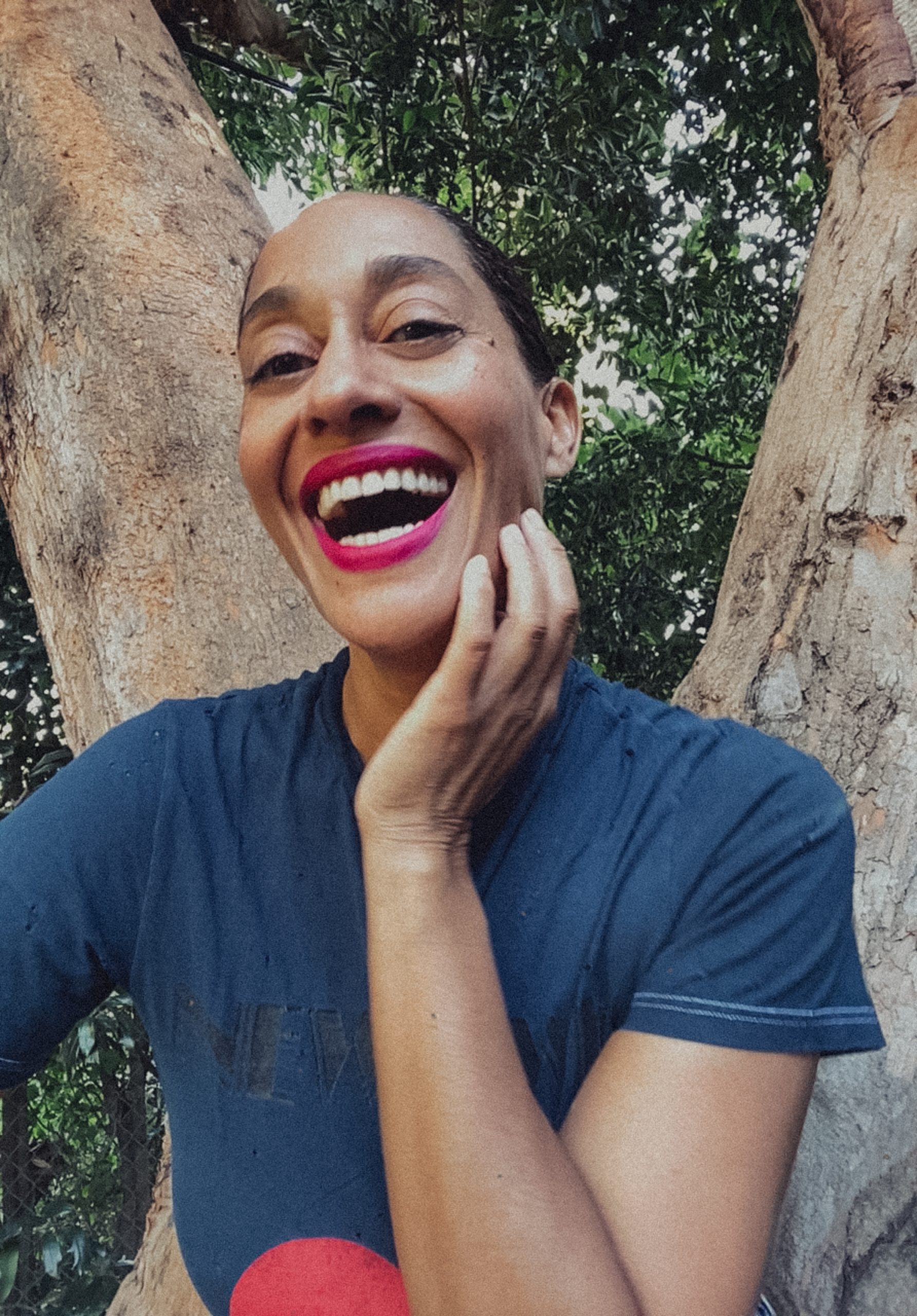
TYLER: That’s what soul is. Soul music is music from your soul, and what is your soul? That inner spirit, your nuance. So hearing you get to that point is fire, because then you get comfortable with, “Oh, this is how I sound. This is how my voice is. Let me perfect that.” I think that’s beautiful, because that’s what I had to do. I sound like a fucking monster all the time, and I want to sound like Charlie Wilson.
ROSS: You do not sound like a monster.
TYLER: Well, I don’t sound like Charlie Wilson.
ROSS: I wanted to sound like Jennifer Hudson. But then I realized how weird it would be if I opened up my mouth and Jennifer Hudson’s voice came out. People would be like, “What the fuck?”
TYLER: I think it’s great that for this, and not even just for this film, just for you, you got over that and got to this point where you’re like, “This is what it is.”
ROSS: That was a big life leap for me. I always call them lily pad moments, the places where you land for just a moment.
———
Styling, Hair, and Makeup: Tracee Ellis Ross

